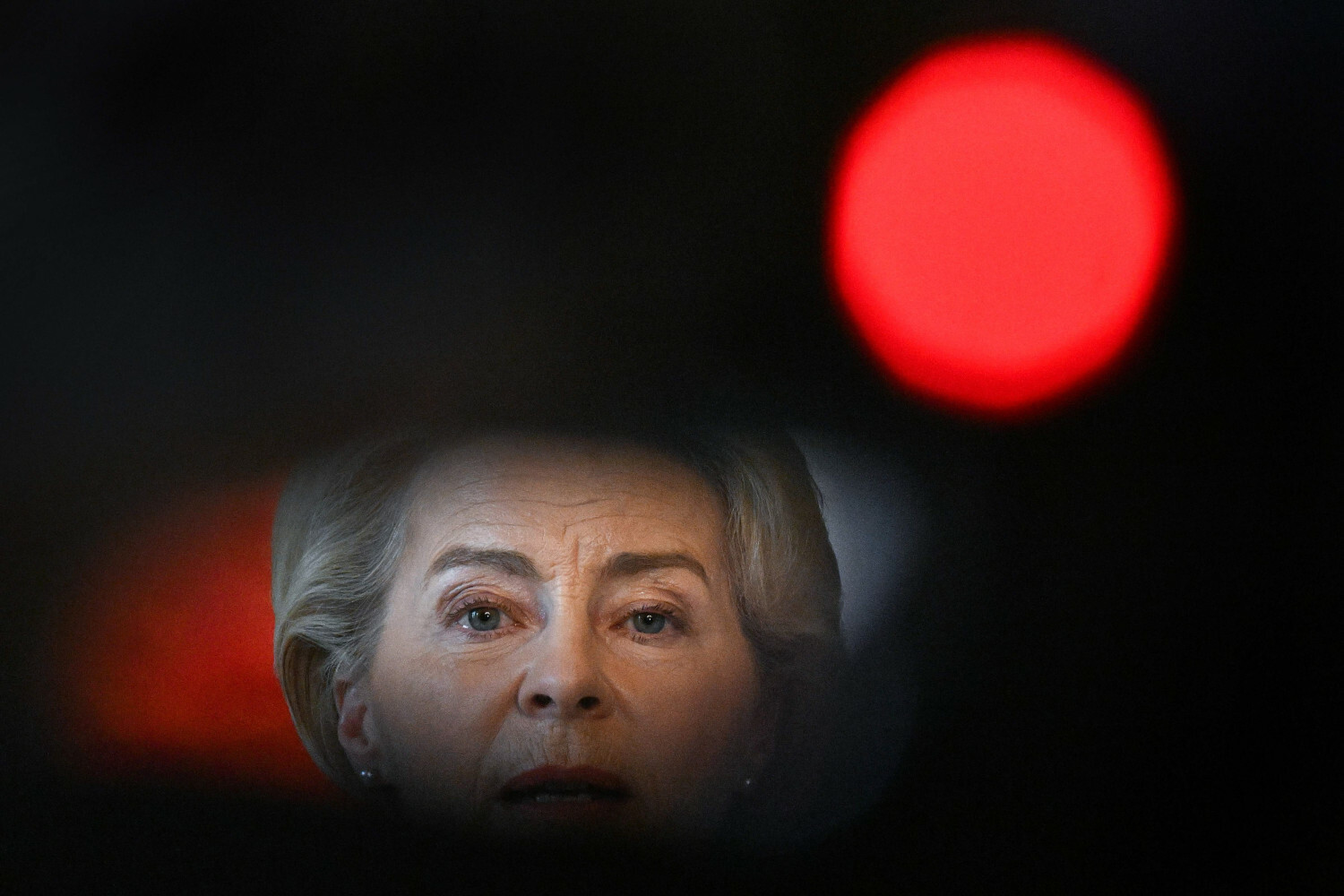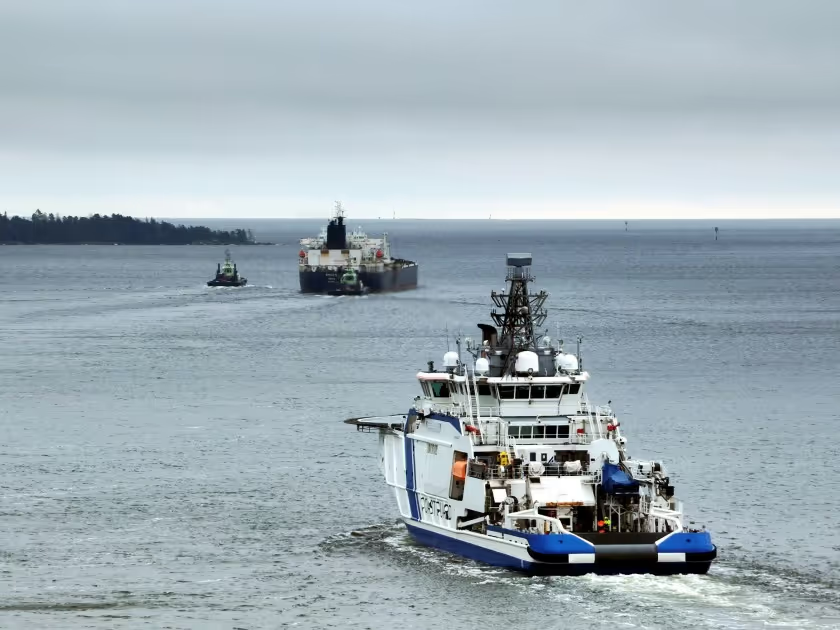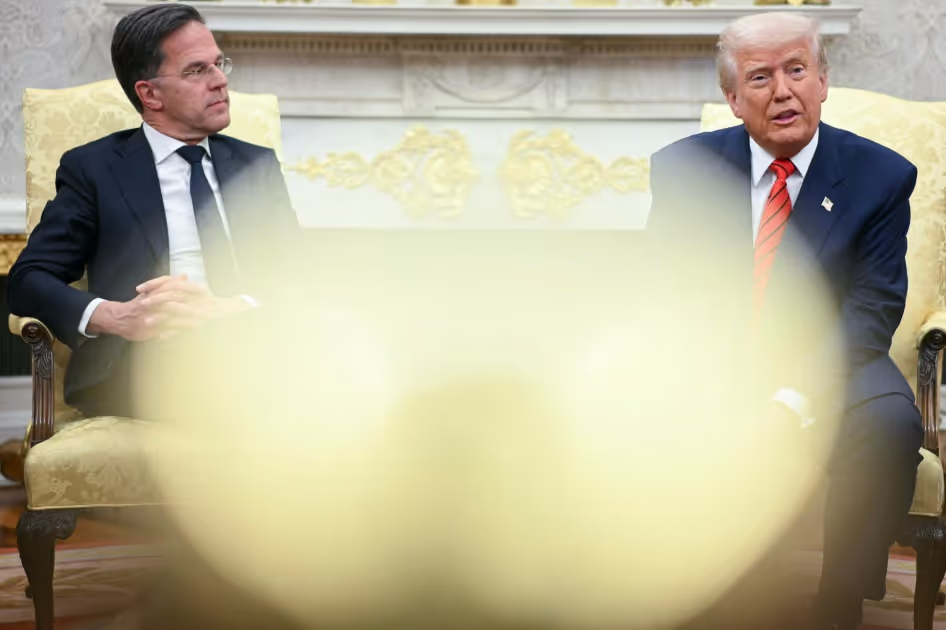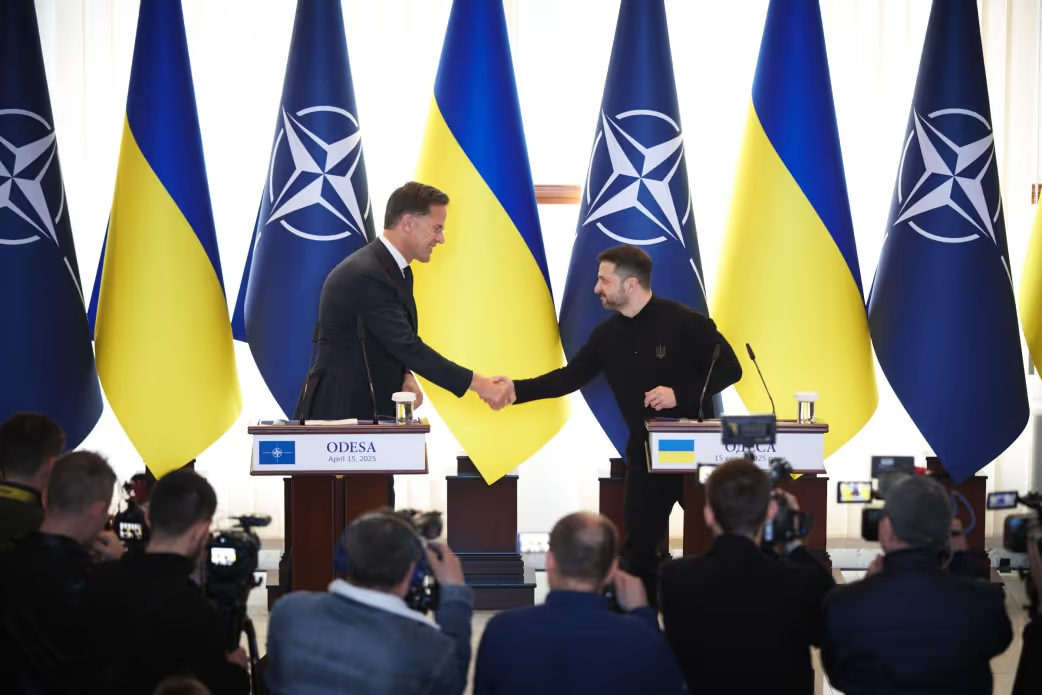Support Sestry
Even a small contribution to real journalism helps strengthen democracy. Join us, and together we will tell the world the inspiring stories of people fighting for freedom!
Her second term as President of the European Commission has been marked by growing attempts to challenge her authority. In July, Ursula von der Leyen narrowly survived a vote of no confidence.
During the current plenary session of the European Parliament (October 6–9), the issue of trust in her leadership will once again be put to a vote.
Support from centrists and moderate forces should grant the Commission President a temporary sense of stability — but will that support last?
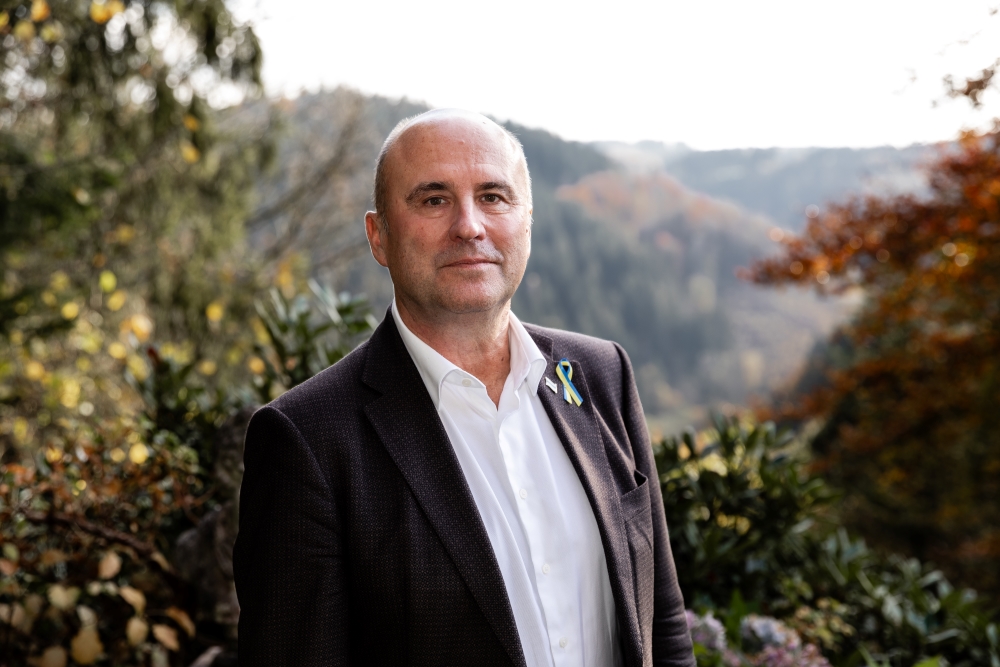
The Best person for the job
Maryna Stepanenko: Since 2014, no President of the European Commission has faced a vote of no confidence, yet Ursula von der Leyen has found herself in this situation for the second time. What is the source of this political crisis?
Roland Freudenstein: Within the European Commission, critical voices toward its President are becoming more frequent — not only from political extremists but also from some centrists. However, everyone understands that, in reality, there is no alternative. That’s why the upcoming vote of no confidence is unlikely to succeed.
Some call Ursula von der Leyen “Europe’s strong voice in the world” and a consistent advocate for Ukraine’s interests across the continent. Others claim she lacks the persistence needed to see major initiatives through to the end. What would you identify as von der Leyen’s main strengths and weaknesses as a politician?
I would say her greatest strength lies in the power of her convictions and her incredible work ethic.
She is often described as a workaholic. She even turned her room on the 13th floor of the Commission’s headquarters in Brussels into a makeshift office.
Naturally, not everyone appreciates that. Some people dislike strong Commission Presidents; others simply dislike strong women. She has also faced criticism for not devoting enough attention to certain projects — though, in most cases, the circumstances worked against her.
The best example is the European Green Deal — an effort to balance Europe’s economic competitiveness with the fight against climate change. For years, the pendulum of public sentiment swung toward saving the planet, but that moment has passed. Now, von der Leyen is unable to deliver on all the “green course” initiatives she once championed at the start of her second term.
Although the summer’s vote of no confidence was unsuccessful, it exposed deep divisions within the European Parliament. How do you assess von der Leyen’s ability to maintain the support of various political groups during her second term?
— The very fact that her most ardent critics come from the far left and the far right is what ensures her survival. The left doesn’t want to vote with the right — and vice versa. Moreover, there truly is a sense, even among her critics, that no one else could do this job better than she does.
If we look at their own criteria — especially in areas such as social legislation, environmental policy, and respect for member states — I simply cannot imagine anyone else capable of fulfilling this role.
Her critics know this too, particularly those in the political center who may be dissatisfied with her style or certain decisions. In the end, even they admit it.
Is Ursula von der Leyen able to adjust her policies to satisfy both centrist and right-wing parties while maintaining the unity of the EU?
No, that’s impossible — you can’t please everyone. It’s the same in national politics: no head of government can satisfy all voters. That’s why von der Leyen must rely on a coalition of centrist forces.
Yet even within that coalition, maintaining consensus is extremely difficult — it requires constant compromise. And this is precisely where her strength and her work discipline play a positive role. To make compromises, you must be strong and guided by strong convictions. At the same time, you have to work relentlessly and cooperate with a vast number of decision-makers.
I am deeply convinced that Ursula von der Leyen is currently the best person for this job.
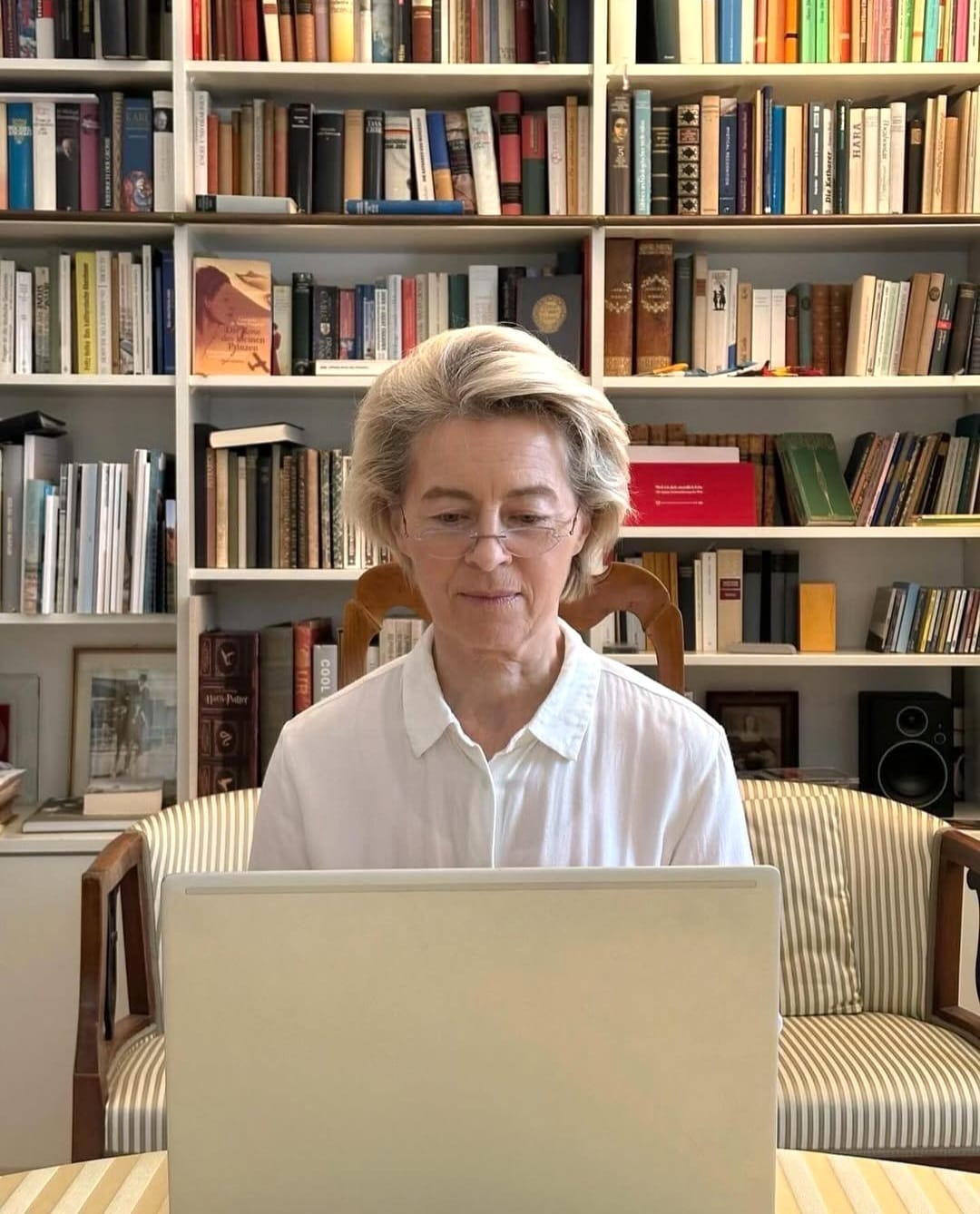
The Political Show of the Far Right
The influence of right-wing parties in the European Parliament is growing. How do you assess their impact on the EU’s political direction? Could they change the balance of power within the European People’s Party (EPP)?
Under the leadership of Manfred Weber, the European People’s Party has at times adopted positions aligned with the far right, allowing it to build a majority that extends beyond the classic centrist coalition of the EPP, liberals, social democrats, and greens. For instance, on certain provisions of the Green Deal, the EPP diverged from von der Leyen and pushed the Commission toward more right-leaning, pro-agricultural stances.
However, on strategic issues — European defense, support for Ukraine, and global trade agreements — its stance remains fully aligned with the EPP’s. The real problems tend to come from the left, particularly the socialists and the greens. One example was von der Leyen’s strong reaction to the situation in Israel and Gaza, which many EU members — including socialists and greens — saw as hasty and one-sided in favor of Israel.
So while the EPP has influenced von der Leyen’s program to some extent, on key strategic matters it remains close to her views.
Given the far-right parties’ support for the vote of no confidence against von der Leyen, could their goal be not just to change the leadership but to influence the overall direction of the EU?
Yes, that’s exactly what they’re trying to do. They aim for tactical victories by gathering as many votes as possible for a no-confidence motion against Ursula von der Leyen. They’re unlikely to win such votes, but their goal is to send a political message.
If you look at Viktor Orbán’s rhetoric, it becomes clear that Brussels is his enemy — and no one personifies Brussels more than Ursula von der Leyen, the President of the European Commission.
Of course, there are other influential figures — the Presidents of the Parliament and the Council, and High Representative Kaja Kallas — but von der Leyen is the most powerful of them all.
That’s why she has become a symbol of the EU institutions, which, according to Orbán, have grown too powerful and have led Europe in the wrong direction. Together with the Patriots for Europe (PFE) and other far-right groups, he wants to attack her publicly — and, through her, attack the very idea of the European Union.
They want to turn it into a grand political show.
Hungary, under Orbán’s leadership, has repeatedly blocked EU initiatives — especially those related to sanctions against Russia. How do you assess Orbán’s actions and their impact on von der Leyen’s position?
Viktor Orbán has effectively sided with Putin — he’ll never admit it, but that’s the truth. He believes the future belongs to dictators, wants to maintain close relations with them, and ultimately aspires to become one himself. He might even lose the next election, but that remains his worldview.
He rejects everything the EU stands for: shared sovereignty, strong Brussels institutions, and majority voting in the Council. He has also been a vocal opponent of Ukraine’s EU membership. However, in the coming weeks, the Council may attempt to bypass Hungary’s veto on sanctions against Russia.
At this point, not only Brussels institutions but also most EU member states have had enough of Orbán and are looking for ways to work around Hungary — and, in some cases, Slovakia as well.
That’s a major shift. Previously, member states disliked Orbán but rarely confronted him directly. Now, countries like Poland, the Baltic states, the Nordics, and even Germany sometimes do so openly. Orbán feels cornered. He continues to portray Brussels as the villain and the member states as the “good guys,” but in reality, most governments now openly oppose him. His fallback strategy is to delegitimize them by labeling them “elites” or “globalists” who no longer represent their nations. But since those governments were democratically elected, Orbán’s position is increasingly difficult.
Von der Leyen has publicly supported ending the EU’s unanimity rule in certain policy areas. Can this move be seen as radical or risky for her political career?
No, because she’s not the driving force behind this process. And she’s being very wise not to be — it would only reinforce the stereotype of her as a power-hungry Eurocrat bent on limiting member states’ rights. Let’s not forget that several member states themselves remain hesitant about majority voting in crucial areas.
It would be much better if another influential figure in Brussels — in this case, European Council President António Costa — took the lead, with member states’ backing. That way, the issue would appear political, not personal. Honestly, I don’t think the debate over majority voting will harm her career.
Disinformation and Russia’s Natural Enemy
How do you assess the role of disinformation in EU politics, particularly in campaigns targeting von der Leyen?
Its influence is significant. Russia is doing everything it can to increase tensions in European politics — both within member states and inside the Brussels bubble. The negative image of Ursula von der Leyen is part of that effort to fuel conflict. And of course, Russian disinformation and propaganda target her directly because of her strong and consistent stance on Ukraine. She is, quite simply, their natural enemy.
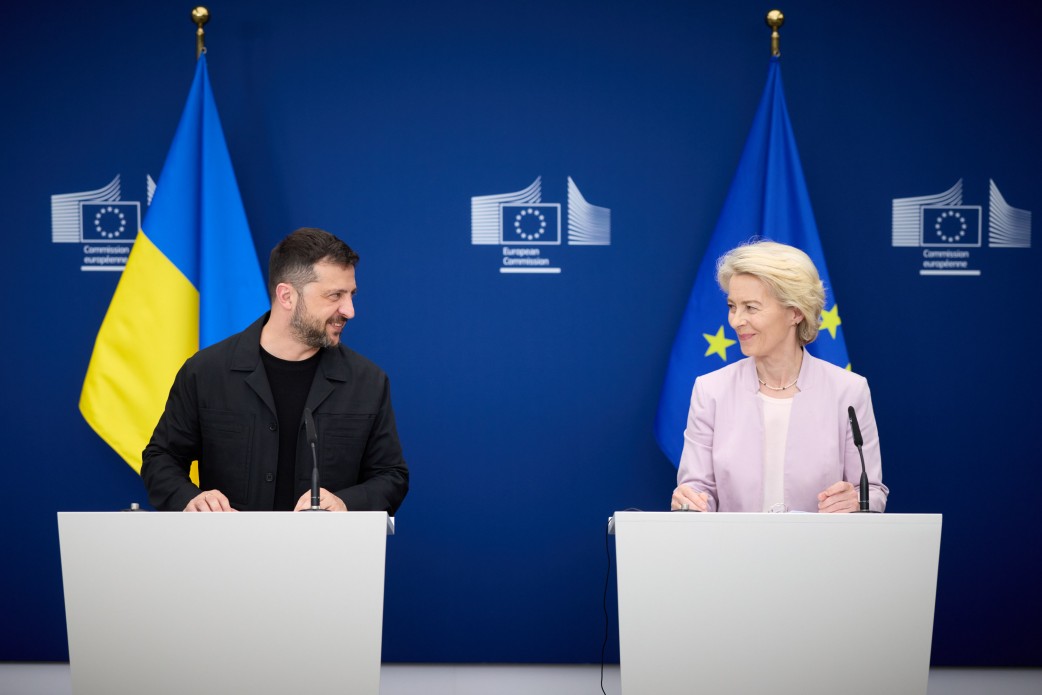
Russia is always trying to heighten political tensions and internal divisions within the European Union.
At the same time, I notice that people expressing Eurosceptic views or criticizing von der Leyen or Ukraine aren’t always doing so because the Kremlin is paying them. Sometimes, they genuinely believe what they say. That’s why I would be cautious about labeling every form of criticism as Russian disinformation or assuming that someone is on Putin’s payroll.
We need to counter such criticism with political arguments — not just by pointing fingers.
There is a widespread sense of frustration — a belief that things are going in the wrong direction, that wealth is distributed unfairly, that Europe isn’t generating enough economic growth, that too much is spent on defense and too little on social issues, and so on. These feelings are real. Russia seeks to exploit them to intensify political tensions. However, the right way to respond to this criticism is through political action — not merely by accusing people of taking money from Moscow.
Is the European Union responding actively enough to the threat of disinformation from third countries? What more should be done to strengthen the EU’s information security?
Neither national governments nor the EU itself should directly hire people to fight disinformation. Instead, they should fund projects that strengthen and empower civil society — for example, investigative journalists who expose networks of Russian influence.
Of course, governments should use their intelligence services to detect influence operations. But the primary response of a free society to authoritarian threats — whether in the information sphere, social media, or the economy — must come from civil society itself. This means foundations, political parties, think tanks, associations, universities, and the media.
Ukraine itself has achieved remarkable success in countering Russian disinformation since the early years following the illegal annexation of Crimea and the occupation of Donbas in 2014. It was Ukrainian civil society that responded — and far more quickly than the government. The same should happen within the European Union. Governments should fund and support civil society, but the real work must be done by the citizens themselves.
Ukraine’s Integration with the EU: Just the Beginning
In her State of the Union address, Ursula von der Leyen emphasized the importance of Ukraine’s integration with the European Union. How do you assess the role of the President of the European Commission in this process?
She sets concrete goals and defines the direction for Ukraine’s path toward EU membership. And this is not merely her personal initiative — it is the initiative of the entire European Commission. She is implementing the will of the member states within the EU Council, yet there are still many aspects she manages independently.
The EU’s assistance to Ukraine — particularly the EU-financed military support — is one of Ursula von der Leyen’s major personal achievements, as she has invested enormous energy into it. The same goes for Ukraine’s accession process. However, the final decisions will be made by the member states, not by the Commission or von der Leyen personally.
Could Ukraine become an EU member by 2030?
That is the plan. I wouldn’t say it’s impossible, but the EU has had surprisingly mixed experiences with setting a fixed date before successfully closing all negotiation chapters and fully implementing the necessary legislation in the candidate country.
Ukraine still has work to do — not so much in adopting legislation, which is largely ready, but in enforcing it, especially in strengthening the rule of law and the fight against corruption. This year has brought certain setbacks, which have certainly not helped accelerate Ukraine’s accession process. But Ukraine has the potential to meet these challenges.

Ukrainian journalist. Worked at the Ukrainian edition of Radio France Internationale. She was the senior editor of the English-language project of the Multimedia Broadcasting Platform of Ukraine. She held the position of international news department columnist at the «Inter» TV channel. She has also been involved in documentary filmmaking in the past. Currently, she is developing a Ukrainian-language YouTube project as an editor and scriptwriter.

